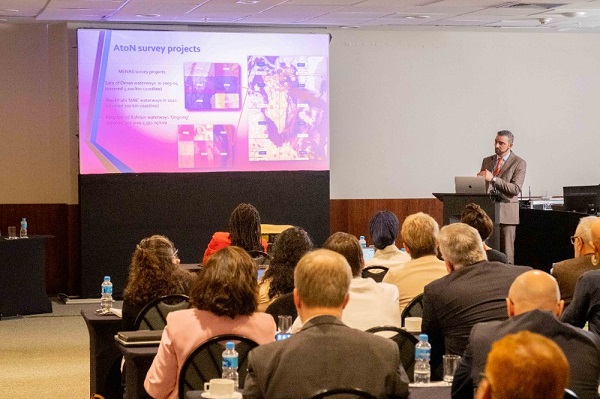Human Presence in Navigation is Vital Despite Digitalisation
Digitalisation can only go so far in protecting safe navigation in busy shipping lanes with human involvement essential in guarding against electronic failure, according to a leading provider of Aids to Navigation (AtoN) in the Middle East Gulf.
While there are clear benefits associated with the advancement of digital technology and Artificial Intelligence, organisations like the Middle East Navigation Aids Service (MENAS), firmly believe that human presence remains essential, especially in cases of electronic failure onboard.
In recent years, the maritime industry has witnessed a significant shift towards digitalisation, with advanced navigation systems and automated technologies becoming prevalent on ships. While digitalisation offers numerous advantages, such as improved efficiency and enhanced safety features, MENAS highlights the inherent limitations of relying solely on electronic systems.

During the 20th IALA Conference in Brazil, Mahdi Al Mosawi, MENAS General Manager, spoke to delegates on the core challenges associated with digitalisation and how Aids to Navigation (AtoN) technicians navigate the current challenges in a digital world. He said: "Digitalisation is transforming the maritime sector, bringing unparalleled benefits in terms of navigation accuracy and operational efficiency and low cost. However, it is crucial to acknowledge that electronic systems are not infallible. In the event of an electronic failure or malfunction, human intervention and expertise is essential to ensure the safety of vessels, crew, and cargo."
| Read More: MENAS awarded a project to survey important Aids to Navigation in Bahrani waters |
Accredited by IALA and Trinity House as a training organisation, MENAS emphasised the importance of well-trained technicians and AtoN engineers onboard ships who can provide maintenance to prevent AtoNs failures and accidents. In situations where electronic systems may experience glitches, technicians can make informed decisions to fill these gaps, ensuring ships navigate safely. The combination of human judgement and technological support remains a vital aspect of reliable and secure navigation.
Additionally, MENAS highlights the role of human operators in interpreting and contextualising data provided by digital systems. While automation offers real-time information and predictive analytics, it is the experience and intuition of human navigators that allow for a comprehensive understanding of complex maritime environments. These skilled professionals possess the ability to identify potential hazards, adapt to changing circumstances, and mitigate risks effectively.
Mr Al Mosawi concludes: "At MENAS, we believe that a harmonious integration of digital technologies and human expertise is the best approach to ensure the highest level of safety. While digitalisation brings undeniable advantages, it is vital to recognise that humans remain an indispensable element in maritime operations."
As the maritime sector continues to evolve, MENAS remains at the forefront of championing the effective integration of digitalisation while recognising the crucial role of training to contribute to a safer and more secure maritime environment.
| Read Here | |
 |
|



































